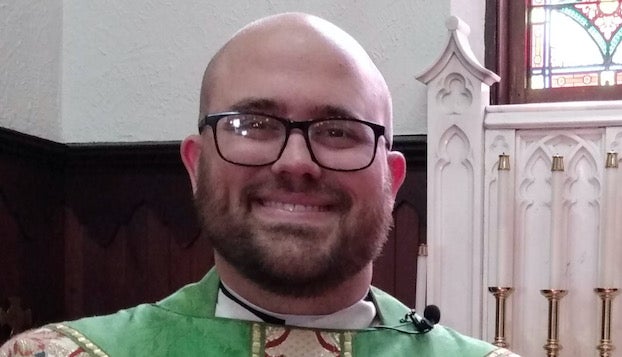Advent-the season of expectation and hope
Published 4:20 pm Tuesday, November 30, 2021
|
Getting your Trinity Audio player ready...
|
Growing up as a Southern Baptist, I never celebrated Advent. I don’t remember even having an Advent calendar around. You know, the ones with chocolate behind the little doors? After Thanksgiving, we launched straight into Christmas. However, when I became an Episcopalian, I was introduced to Advent not as a countdown to Christmas, but as a time set apart for waiting, preparation, and hope. At first, this idea wasn’t particularly meaningful to me. Advent was just a fancy word used to talk about that hurried time leading up to Christmas Day. The weeks were spent shopping for the perfect gift for my mother or attending yet another Ugly Sweater Christmas Party. There wasn’t much waiting, nor was there much slow and deliberate reflection on just what Christmas means beyond the cellophane and candy canes.
When I began taking Advent seriously as a time to slow down and reflect, things began to change. I made it a point to get Christmas shopping done early so I didn’t get caught up in the mad rush before the day itself. I carved out time in my schedule to think about the state of my life, my relationships, my sense of self even. In the busy-ness of Christmas, it’s an almost impossible task to slow down and turn inward. Yet the effort is always worth it, because we deserve to take time for ourselves. We deserve rest, even if it means we have to take that rest by force, metaphorically speaking, of course. I’m not advocating for punching your boss in the face and shouting, ‘It’s my time to rest!’
Advent is more about rest, though. It’s a season of expectation and hope. For Christians, we spend Advent in hopeful expectation of the birth of Jesus. Of course, we aren’t celebrating as if he is born again each and every year. Rather, the annual celebration of his birth can re-ignite our sense of hope for the restoration and transformation of the world. As I see it, the birth of Jesus isn’t so much about the birth of a child whose sole purpose was to die at age 33. Along with the birth of that Holy Child was born the possibility of a more just, more holy, more inclusive world. Advent then becomes a time for me to think about all the values and ideals that Jesus represents and honestly reflect on the ways I succeed and fail at living up to his ideals. Advent creates the opportunity for us to hope for a better world than we have right now. Inspired by this hope, we then live in a way that realizes our hopes and dreams.
This kind of hopefulness and preparation isn’t exclusively a Christian practice. It’s not even exclusively religious. What inspires you to live and work for a better world? What well do you draw from when life as you know it needs to be renewed? Whether you are a committed atheist, a practicing Christian, or a devout pagan, you have all the resources you need to pause, take time for yourself, and reflect on the state of your life and the world. What role can you play in living in such a way that every member of our community knows they are valued, appreciated, and worthy of love? What role can you play in ensuring that none go hungry in our community? These ideals are not the property of Christianity, no matter how fervently some of my religious siblings believe that to be true. So, let’s then scrap the religious language. What can you do to be the best, most loving human being you possibly can be? What gives you hope, and what do you need to do to make that hope a reality?
Chris Adams is the rector at St. Peter’s Episcopal Church in Washington






